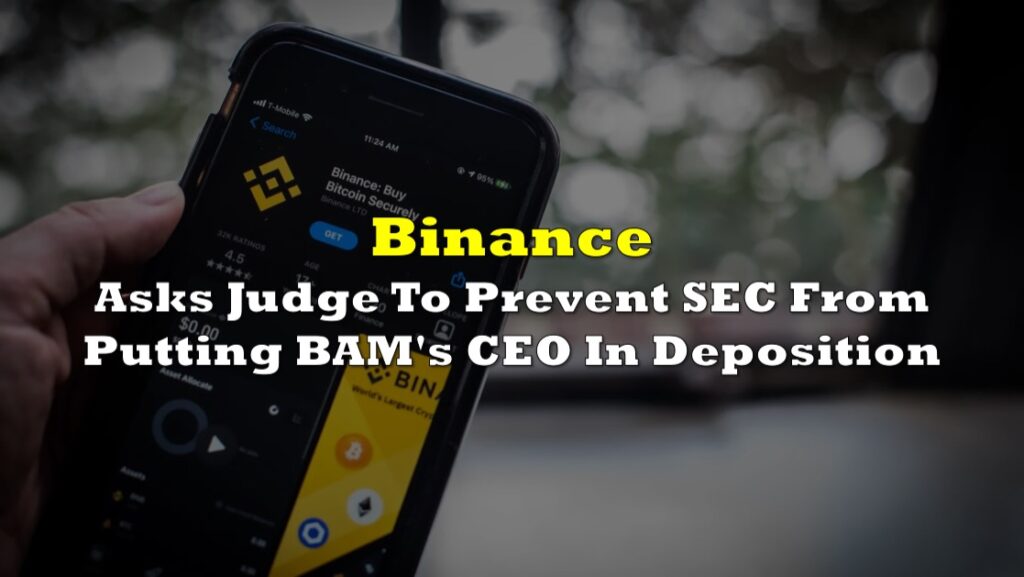The Securities and Exchange Commission charged crypto exchange Kraken on Thursday with failing to register the offer and sale of their crypto asset staking-as-a-service scheme, in which investors send crypto assets to Kraken for staking in exchange for promised yearly investment returns of up to 21%.
Staking is a procedure in which investors “stake” or lock up their crypto tokens with a blockchain validator so they can validate data blocks for new tokens. The blockchain validators then share the yield of new tokens with the investors.
The commission claims that when investors send tokens to staking-as-a-service providers, they take on risks with “very little protection.”
“Whether it’s through staking-as-a-service, lending, or other means, crypto intermediaries, when offering investment contracts in exchange for investors’ tokens, need to provide the proper disclosures and safeguards required by our securities laws,” said SEC Chair Gary Gensler. “Today’s action should make clear to the marketplace that staking-as-a-service providers must register and provide full, fair, and truthful disclosure and investor protection.”
Today we charged Kraken with failing to register the offer and sale of their crypto asset staking-as-a-service program, whereby investors transfer crypto assets to Kraken for staking in exchange for advertised annual investment returns of as much as 21 percent.
— U.S. Securities and Exchange Commission (@SECGov) February 9, 2023
According to the SEC’s lawsuit, Kraken has offered and sold its crypto asset “staking services” to the general public since 2019, in which Kraken pools specific crypto assets sent by investors and stakes them on their behalf. Further, the commission said that the crypto exchange promotes its staking investment program as providing “an easy-to-use platform and benefits that derive from Kraken’s efforts on behalf of investors,” such as Kraken’s methods to acquire regular investment returns and payouts.
This essentially continues the ongoing argument in the industry on whether staking should be considered as a security and, therefore, should be under the regulatory agency’s purview.
To resolve the SEC’s accusations, Kraken agreed to stop offering or selling securities through crypto asset staking services or staking programs immediately and permanently. The firm will also pay $30 million in disgorgement, prejudgment interest, and civil penalties.
SEC vs. Commissioner
Gensler tried to elucidate further on the matter in one of his video series, Office Hours.
“What does steak have to do with our security laws?” the chief regulator started. “That’s S-T-A-K-E, not S-T-E-A-K.”
Today @SECGov charged Kraken for the unregistered offer & sale of securities thru its staking-as-a-service program.
— Gary Gensler (@GaryGensler) February 9, 2023
Whether it’s through staking-as-a-service, lending, or other means, crypto intermediaries must provide the proper disclosures & safeguards required by our laws.
In a nutshell, Gensler describes staking-as-a-service as the process of transferring an investor’s token to a provider–at which point, they take control of the token and possibly pool them–in exchange for the promised return.
“When a company or platform offers you these kinds of returns… that relationship should come with the protections of the federal securities laws,” Gensler added. “That means you, the investor, should receive disclosures.”
He added that signing an agreement with staking-as-a-service providers generally means the investor is “transferring ownership” of the tokens to the provider, seemingly contradicting the common crypto expression “not your keys, not your crypto.”
“You see, you’re basically an investor in their platform. If it goes under, and we’ve seen plenty of that recently, you end up in line in the bankruptcy court,” Gensler explained.
However, while the commission touts Kraken’s fate as “another step in protecting retail investors,” Commissioner Hester Peirce disagrees.
“Today, the SEC shut down Kraken’s staking program and counted it as a win for investors. I disagree and therefore dissent,” the dissenting commissioner wrote in a statement.
Whether staking programs count as securities or not, the SEC commissioner instead wanted to focus on “the more fundamental question” of whether registration would have even been possible.
“In the current climate, crypto-related offerings are not making it through the SEC’s registration pipeline,” Peirce said. “An offering like the staking service at issue here raises a host of complicated questions, including whether the staking program as a whole would be registered or whether each token’s staking program would be separately registered, what the important disclosures what be, and what the accounting implications would be for Kraken.”
My thoughts on today's Kraken settlement: https://t.co/mijt3MNN4U
— Hester Peirce (@HesterPeirce) February 9, 2023
Instead of thinking through staking programs and offering guidelines, the regulatory authority chose to speak through an enforcement action, she continued.
“Using enforcement actions to tell people what the law is in an emerging industry is not an efficient or fair way of regulating,” she added, noting that staking services aren’t uniform and a closure of one “does not cut it.”
Peirce called the move “a paternalistic and lazy regulator [settling] on a solution… [to] just shut it down,” instead of initiating a public process “to develop a workable registration process that provides valuable information to investors.”
“More transparency around crypto-staking programs like Kraken’s might well be a good thing,” she said. “However, whether we need a uniform regulatory solution and if that regulatory solution is best provided by a regulator that is hostile to crypto, in the form of an enforcement action, is less clear.”
Coinbase: Staking is not security
While not commenting directly on Kraken’s issue, fellow crypto exchange Coinbase–who’ve had a storied series of skirmishes with the SEC–defended staking programs, adding that “staking is not a security.”
“Staking is a really important innovation in crypto. It allows users to participate directly in running open crypto networks. Staking brings many positive improvements to the space, including scalability, increased security, and reduced carbon footprints,” Coinbase CEO Brian Armstrong wrote in a tweet.
4/ We need to make sure that new technologies are encouraged to grow in the US, and not stifled by lack of clear rules. When it comes to financial services and web3, it's a matter of national security that these capabilities be built out in the U.S.
— Brian Armstrong (@brian_armstrong) February 8, 2023
He went on to say that “regulation by enforcement doesn’t work” and merely encourages corporations to operate abroad, as bankrupt crypto exchange FTX did.
Coinbase has been lobbying the SEC to further define the characterization of each asset and install a clearer guideline on how these should be regulated, arguing that the legal precedents the regulatory body is basing its decisions on is relatively outdated.
In November, Kraken announced it was laying off about 1,100 employees, blaming it on unfavourable market conditions and rising interest rates.
Information for this briefing was found via the sources mentioned. The author has no securities or affiliations related to the organizations discussed. Not a recommendation to buy or sell. Always do additional research and consult a professional before purchasing a security. The author holds no licenses.









